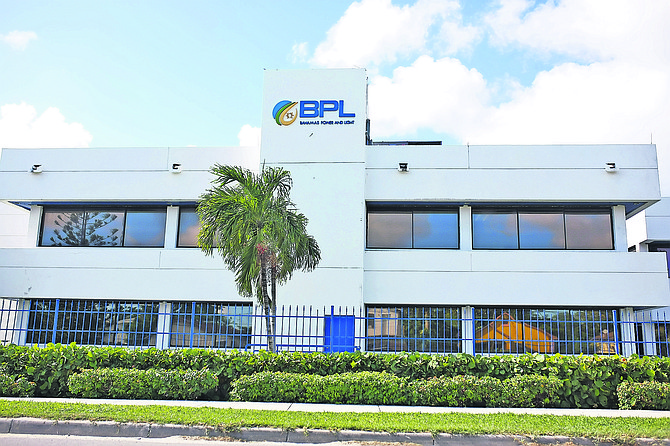By NEIL HARTNELL
Tribune Business Editor
nhartnell@tribunemedia.net
Bahamians will have to wait for Bahamas Power & Light’s (BPL) soaring energy bills to ease before “the moderation of inflation starts to look more like” other countries, the Central Bank’s governor warned yesterday.
John Rolle, addressing the regulator’s 2023 second quarter briefing, also warned that high energy and transportation costs threaten to undermine the Bahamian tourism industry’s competitiveness even though the threat of a major US recession impacting travel demand appears to have receded.
While Bahamians in April 2023 suffered the highest month-over-month increase in the consumer price index, as measured by the Bahamas National Statistical Institute, since May 2022, the Governor pointed out that on an annual basis the rate of inflation had started to decrease.
Acknowledging that the “highest level of inflation we have observed in The Bahamas did occur post-2022”, as numerous families continue to grapple with the cost of living crisis, Mr Rolle said the country’s status as an importing nation means any easing of prices here will occur after the same is experienced in the US and elsewhere.
“The point to stress for The Bahamas is that the timing is delayed partly because the adjustments that we are seeing, save the electricity and related costs, are much later than those that are already taking place in other countries,” he added. “To some extent we are going to have to experience the full amount of whatever adjustment and catch up that is likely to happen in the electricity costs before we see the inflation moderation start to look more like what is happening abroad.
“It should be stated that the peak rates of inflation that we have seen in The Bahamas so far did not reach the rates that were attained in the US.” The Central Bank, in its just-released monthly report for June, said: “Average domestic consumer price inflation, as measured by the All Bahamas Retail Price Index, firmed to 5.6 percent during the 12 months to April from 3.8 percent in the corresponding 2022 period, reflective of the pass-through effects of higher international oil prices and other costlier imports.
“Specifically, average costs increased for recreation and culture (16.9 percent) and miscellaneous goods and services (0.9 percent) after registering reductions in the previous year. Further, average inflation accelerated for food and non-alcoholic beverages (12.7 percent), restaurants and hotels (11.1 percent), health (5 percent), and housing, water, gas, electricity and other fuels (4.5 percent).
“Providing some offset, average inflation moderated for transport (8.9 percent), clothing and footwear (3.5 percent), alcohol beverages, tobacco and narcotics (3.4 percent, communication (3.2 percent), furnishing, household equipment and routine household maintenance (1.8 percent) and education (1.4 percent).”
Mr Rolle, meanwhile, said that while Bahamian tourism and the economy will benefit from a likely “soft landing” of the US economy, with higher interest rates bringing down inflation without causing a major recession, higher energy and transportation costs still pose a threat to the country’s largest industry.
“The point that is still important to stress, though, is that there are costs to tourism related to the cost of transportation and cost of electricity when you come in-country. We have to be mindful of how this impacts the competitiveness of the product even if individuals are not directly impacted to the same extent through their income,” he added.
Mr Rolle also indicated that the Central Bank is reviewing the year-end 2024 deadline to eliminate the use of cheques as a form of payment and the pace at which this will be achieved.





Comments
Use the comment form below to begin a discussion about this content.
Commenting has been disabled for this item.